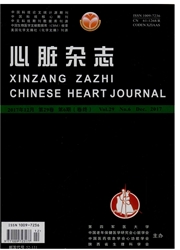

 中文摘要:
中文摘要:
自噬是一个进化上高度保守的受损或功能障碍的蛋白质聚集体或细胞器降解的过程。在心肌缺血/再灌注(I/R)过程中,可以通过多种因素诱导细胞的自噬活动,而且越来越多的证据表明,自噬在心肌缺血/再灌注损伤(MIRI)中可能起“双刃剑”的作用,适度自噬可促进细胞存活;而不适当的激活自噬可能会加速细胞死亡。Beclin1介导的自噬/凋亡互反馈信号通路和哺乳动物雷帕霉素靶蛋白(mTOR)介导的自噬与mTOR的互反馈信号通路,是两条经典的自噬激活信号途径,也可能是调控自噬“双刃剑”转向促进细胞存活的重要调控机制。本文将重点综述上述两条信号通路对自噬的交互式调控作用。
 英文摘要:
英文摘要:
Autophagy is an evolutionarily conserved process responsible for the degradation of damaged and dysfunctional cellular organelles and protein aggregates. Recent evidence indicates that autophagy could be induced in ischemia/reperfusion injury. There is increasing evidence that autophagy plays a "double-edge sword" role in myocardial ischemia/reperfusion injury. Moderate autophagy could promote cell survival, but improperly activated autophagy may accelerate cell death. Beclin 1 and mTOR mediated signaling pathways are two classical signaling pathways that activate autophagy and may also be involved in the important regulation mechanism of autophagy in promoting cell survival. This paper mainly reviewed the interactive regulation of Beclin 1 and mTOR signaling pathways in autophagy.
 同期刊论文项目
同期刊论文项目
 同项目期刊论文
同项目期刊论文
 期刊信息
期刊信息
